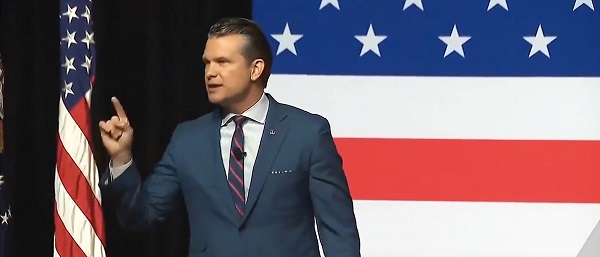Also Interesting
Alberta Plans To Open iGaming Market After Ontario’s Success

With plans to regulate its iGaming market, Alberta aims to deliver safer gaming experiences, greater variety for players, and stronger consumer protections.
Alberta is preparing to launch a regulated iGaming market, following Ontario’s successful model. By opening the industry to private operators, the province aims to increase competition, enhance consumer protections, and generate significant revenue. If implemented, this move could position Alberta as a key player in Canada’s evolving online gaming landscape.
The Alberta government has announced plans to open its iGaming market, following in the footsteps of Ontario’s regulated model. The move is expected to create a competitive online gaming environment by allowing private operators to enter the market, rather than keeping online gambling under the sole control of Alberta Gaming, Liquor and Cannabis (AGLC). This shift aligns with the province’s broader strategy to modernize its gaming industry, offering more choices for players while generating additional revenue for public services.
Key stakeholders in this expansion include AGLC, which will oversee regulatory compliance and licensing, and private gaming operators looking to secure a presence in the province. While specific details about licensing requirements and revenue-sharing structures are still being finalized, industry experts anticipate a framework similar to Ontario’s, where operators must meet strict guidelines to ensure consumer protection. Although no official launch date has been set, Alberta officials have indicated that the market could open within 2025, pending regulatory approvals and final policy decisions.
Learning from Ontario’s iGaming Model
Ontario’s transition to a regulated iGaming market in 2022 has been widely regarded as a success, providing a model for other provinces like Alberta to follow. By allowing private operators to enter the market under the oversight of iGaming Ontario (iGO), the province created a competitive and transparent industry that offers players a safer and more diverse gaming experience. The shift also helped curb unregulated offshore gambling by giving players legal, well-regulated alternatives.
Since its launch, the market has seen impressive growth. In its first year, the province generated over $1.4 billion in gaming revenue, making it one of the largest regulated online gaming markets in North America. The competitive landscape has attracted dozens of operators, contributing to job creation and economic development while ensuring a steady stream of tax revenue.
Apart from financial success, regulation has strengthened consumer protection through responsible gaming measures, operator accountability, and stringent licensing requirements. This model has boosted government revenue and set a precedent for how other Canadian provinces, including Alberta, can structure their own regulated iGaming markets.

Potential Challenges and Considerations
While Alberta’s plan to open its iGaming market presents significant opportunities, it also comes with challenges that must be carefully managed. One key hurdle is the regulatory framework, as the province must establish clear licensing requirements, tax structures, and operational guidelines to ensure a smooth transition. Policymakers will need to balance industry growth with responsible gaming practices, learning from Ontario’s experience to avoid potential pitfalls.
Responsible gaming will be another major focus, as increased accessibility to online gambling can raise concerns about addiction and player protection. AGLC will need to implement strict measures, including self-exclusion programs, deposit limits, and public awareness campaigns to promote safe gaming habits. Ensuring that operators comply with these measures will be critical to maintaining consumer trust.
Industry and Player Expectations
This move has sparked interest among gaming operators and industry experts. Many see this as a natural progression following Ontario’s success, with expectations that the province will attract major operators eager to expand into a newly regulated space. However, industry leaders will be watching closely to see how Alberta structures its licensing process and tax rates, which will play a key role in determining the market’s competitiveness.
While Alberta is following Ontario’s lead, its approach may differ in key areas. Ontario operates through iGaming Ontario, a regulatory body that oversees private operators, while Alberta may take a more direct role through AGLC. Additionally, given Alberta’s smaller population compared to Ontario, the province may focus on a more controlled rollout rather than opening the market all at once.
For players, the expansion could mean access to a wider range of online casinos, better game variety, including a larger selection of online slots and table games, and more competitive promotions. With private operators entering the scene, expect an increase in sign-up offers, loyalty programs, and exclusive bonuses designed to attract new customers. If executed effectively, Alberta’s iGaming market could create a more dynamic and player-friendly experience while maintaining strong consumer protections.

What Alberta’s iGaming Future Could Look Like
Alberta’s plan to open its iGaming market marks a significant shift toward a more competitive and regulated online gaming industry. By following Ontario’s successful model, the province aims to create a safer and more dynamic gaming environment while driving economic growth. With private operators expected to enter the market under AGLC’s oversight, players will likely benefit from greater choice and enhanced consumer protections.
If Alberta successfully implements this framework, it could set the stage for other provinces to follow, further shaping Canada’s evolving iGaming landscape. A well-regulated market not only boosts provincial revenue but also strengthens responsible gaming initiatives and keeps players within legal platforms. As the industry awaits further details, Alberta’s next steps will be crucial in determining whether it will become Canada’s next major online gaming hub.
Alberta
From Underdog to Top Broodmare

WATCH From Underdog to Top Broodmare (video)
Executive Producers Jeff Robillard (Horse Racing Alberta) and Mike Little (Shinelight Entertainment)
What began as an underdog story became a legacy of excellence. Crackers Hot Shot didn’t just race — she paved the way for future generations, and in doing so became one of the most influential producers the province has known.
The extraordinary journey of Crackers Hot Shot — once overlooked, now revered — stands as one of Alberta’s finest success stories in harness racing and breeding.
Born in humble circumstances and initially considered rough around the edges, Crackers Hot Shot overcame long odds to carve out a career that would forever impact the province’s racing industry. From a “wild, unhandled filly” to Alberta’s “Horse of the Year” in 2013, to producing foals who carry her spirit and fortitude into future generations.
Her influence ripples through Alberta’s racing and breeding landscape: from how young stock are prepared, to the aspirations of local breeders who now look to “the mare that did it” as proof that world-class talent can emerge from Alberta’s paddocks.
“Crackers Hot Shot, she had a tough start. She wasn’t much to look at when we first got her” — Rod Starkewski
“Crackers Hot Shot was left on her own – Carl Archibald heard us talking, he said ‘I’ll go get her – I live by there’. I think it took him 3 days to dig her out of the snow. She was completely wild – then we just started working on her. She really needed some humans to work with her – and get to know that people are not scary.” — Jackie Starkewski
“Crackers Hot Shot would be one of the top broodmares in Albeta percentage wise if nothing else. Her foals hit the track – they’re looking for the winners circle every time.” — Connie Kolthammer
Visit thehorses.com to learn more about Alberta’s Horse Racing industry.
Also Interesting
Historic Return: NHL Confirms Player Participation in 2026 Winter Olympics

The NHL has officially confirmed the inclusion of its players in the 2026 Winter Olympics in Milan-Cortina, Italy, following a 12-year absence that left the fans craving the excitement of the real best-on-best international hockey. The announcement is a historical event, as it goes back to the Olympic arena where the hockey powerhouse nations of the world will eventually be faced with their complete NHL prowess.
The ruling has not only shaken the hockey fraternity but also the sports fraternity at large, as it has generated early predictions, betting debates, and revived rivalries. Also, such large websites as GGBet, where many fans place their bets, have also been on the lookout, offering odds and analysis on which country will win gold.
A Long-Awaited Comeback
Since the 2014 Olympics in Sochi, NHL players have not been given the chance to play in the Olympics. The spectators have since witnessed world championships that, even though competitive, did not have the superstar appeal of Olympic hockey. This decision of the league in selecting the players to Milan-Cortina is a recreation of the desires of the NHL and the international arena to become one again.
The 2026 tournament will be the one offering the excitement, talent, and passion that will be fitting among NHL players. These legends, such as Sidney Crosby, Connor McDavid, Auston Matthews, and Leon Draisaitl, could play with young players like Jack Hughes and Tim Stützle – that sort of experience and youth.
The Tournament Breakdown
The event in hockey will take place between 11 and 22 February 2026, and the team count will be 12, which will be divided into three groups:
● A: Canada, Switzerland, Czechia, France.
● B: Italy, Finland, Sweden, Slovakia.
● C: Latvia, Denmark, the US, Germany.
The teams will be playing three pre-elimination games followed by play-off, which will lead to the final match, and a gold medal will be given on February 22.
Slovakia is going to play against Finland, and Sweden against Italy. Team USA starts playing on February 12, and Team Canada plays against Czechia. The matches would all be at either the Santagiulia Ice Hockey Arena or the Rho Ice Hockey Arena, both in Milan.
Why This Moment Matters
It is not only entertainment but a legacy that the NHL has gone back to the Olympics. To the league, it reestablishes itself as the world body in professional hockey. To players, it makes their lifelong dream of playing in the national team a reality in the biggest sporting arena. And to fans, it revives the magic that made such moments as Crosby scoring his Golden Goal in Vancouver 2010 unforgettable.
Nevertheless, beyond the ice, such a move will make the NHL more global and strengthen the new generation of sportsmen. The Games of 2026 are expected to achieve a huge global following, whereby fans in North America, Europe, and other continents will be reached.
Looking Ahead
As the opening of February 2026 approaches, the teams are plotting, investigating, and preparing to contest a tournament that numerous people are calling the most competitive Olympic hockey tournament to date. The already existing dream is Canada vs. USA, Finland vs. Sweden, and national pride will clash against the NHL-type talent.
Final Thoughts
It is not a sports story, but a cultural phenomenon because NHL players are returning to the 2026 Winter Olympics. It is an embodiment of unity, excellence, and the unadulterated affection of hockey. The fans all around the world are eagerly awaiting the days when the puck will drop in Milan and they will be watching a show that has been 12 years in the making.
The tournament will not be remembered for the successive gold medals, but rather for the first face-off to the final gold medal celebration. It can be either your country that wins; it could be just watching the magic, but in any case, one thing is certain: the Olympics are back, and the game has never been this alive.
-

 Daily Caller1 day ago
Daily Caller1 day agoParis Climate Deal Now Decade-Old Disaster
-

 armed forces1 day ago
armed forces1 day agoOttawa’s Newly Released Defence Plan Crosses a Dangerous Line
-

 Business16 hours ago
Business16 hours agoOttawa Pretends To Pivot But Keeps Spending Like Trudeau
-

 Energy16 hours ago
Energy16 hours agoLiberals Twisted Themselves Into Pretzels Over Their Own Pipeline MOU
-

 Censorship Industrial Complex14 hours ago
Censorship Industrial Complex14 hours agoHow Wikipedia Got Captured: Leftist Editors & Foreign Influence On Internet’s Biggest Source of Info
-

 Alberta1 day ago
Alberta1 day agoAlberta’s huge oil sands reserves dwarf U.S. shale
-

 Community2 days ago
Community2 days agoCharitable giving on the decline in Canada
-

 Daily Caller1 day ago
Daily Caller1 day agoHegseth Planning Huge Shakeup Of Top Military Command: REPORT










